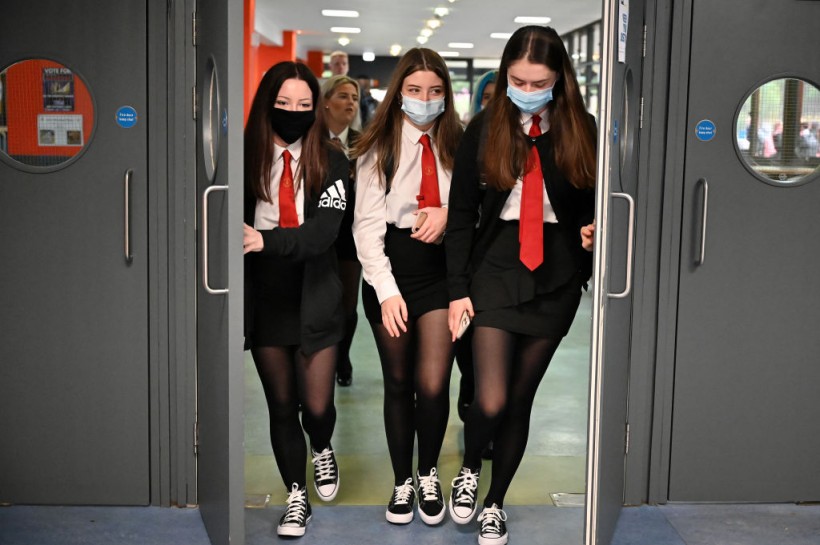Several experts that have been pro reopening schools during the pandemic have pointed out the importance of in-person classes to the mental and physical health of students. However, a recent report revealed that some teenagers felt more connected and less anxious about school while they stayed at home during the lockdown.
The study by the University of Bristol, with the support of the National Institute for Health Research School for Public Health Research, takes a look at how school environments impact the mental health of young teenagers. The report also raises awareness that students returning to school need more support than what is currently available.
In October 2019, about 1000 students from 17 schools in the South West of England participated in a survey where 54 percent of teenage girls and 26 percent of teenage boys were at risk of anxiety. They were surveyed again during May this year a little after schools were forced to close due to the pandemic. The new figures for the risk of anxiety for girls and boys dropped to 45 and 18 percent respectively.
School Environment
Emily Widnall from the University of Bristol's Medical Schools said that experts like herself had "the natural expectation...to see an increase in anxiety" as coronavirus dramatically changed everyone's lives in such a short time. While some participants did have an increase in anxiety levels, "it was a big surprise to discover quite the opposite was the case for many of them," she said.
As a senior research associate in Population Health Sciences, Widnall was particularly interested in students who felt the least connected to school before the lockdown and had the largest drop in anxiety while staying at home. She said that the statistics "raises questions about how the school environment affects some younger teenagers' mental well-being."
When they looked at depression levels, the teenage students were consistent with a slight decrease for boys and a small increase for girls. These results were unexpected as well, said Widnall, because it "arguably shows the resilience of young people and their ability to adapt to challenging situations."
The overall results of student mental health raised interesting questions about what may be the main triggers of both depression and anxiety in 13 to 14-year-olds. In general, the well-being of the students improved during the lockdown.
Widnall explained that their survey gave insight into how students felt without some of the daily pressures associated with school life. For example, staying at home meant that they didn't have to deal with peer pressure or compete in academic achievements.
Overall, staying at home gave the teenagers a stronger sense of being connected to their schools. Most of them liked how they had the opportunity and more time to talk to their teachers individually.
MENTAL HEALTH: Depression and Anxiety Overwhelm Students During the Coronavirus Pandemic
Quality of School Life
The outcomes didn't seem entirely logical, shared the team, which made the research interesting as the students did not feel distant and less connected when in-person classes stopped. Widnall said, "one possible explanation could be the new ways that teachers found to engage with students via digital platforms, which of course, young people are already very familiar with."
The researchers also noticed how social media use also affected the mental health of teenagers positively. At home, spending more than three hours on social media helped them cope by feeling "more connected and in touch, especially during a period of physical isolation," said Widnall. It was also more common for girls to use social media as a learning tool.
Dr. Judi Kidger, a Lecturer in Public Health, said that since schools will soon reopen, supporting the mental health of students need to be considered. The quality of life at school can be made stronger than how it was before the pandemic.
READ NEXT: What We Can Learn From South Korea on Reopening Schools
Check out more news and information on Mental Health on Science Times.
















